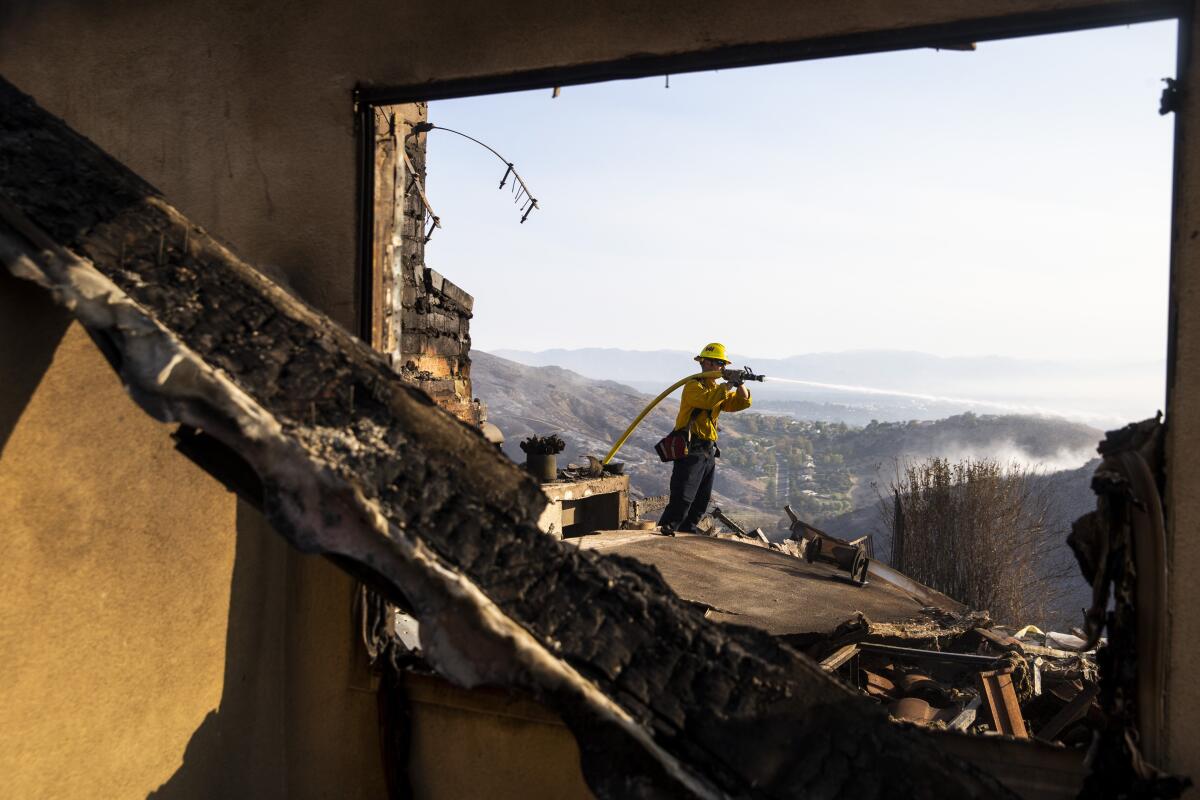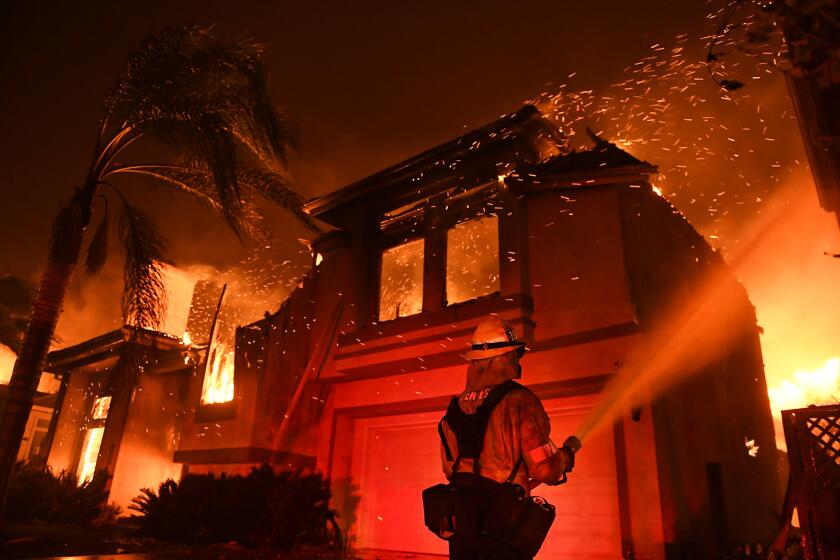Volunteer brigades will help prep for disasters in area devastated by Woolsey fire

- Share via
Volunteer brigades will help their neighbors prepare for wildfires and other disasters in an area devastated by the 2018 Woolsey fire as part of a new program approved by the L.A. County Board of Supervisors.
At least 100 volunteers from Santa Monica Mountains communities are expected to start training early next year, learning about wildland fires, radio protocols and the incident command system used during major disasters, said Brent Woodworth, chairman and chief executive of the nonprofit Los Angeles Emergency Preparedness Foundation, which will run the program.
The volunteers will teach their neighbors how to harden their homes, including how to best clear brush and update a home’s siding or roof to be less likely to burn. They will also conduct free home ignition assessments that outline to homeowners what parts of their property are most at risk and how to fix the problem.
Although they won’t be on the front lines of fighting a fire, the volunteers will help evacuate people and then “mop up” after the fire passes.
“We don’t want [anyone] to stay with their garden hose and try to fight the fire,” Woodworth said. “We want them prepped and out.”
On Tuesday, the Board of Supervisors kicked off the program, which will include Malibu West, Point Dume, Corral Canyon, Big Rock, Topanga Canyon, Hidden Hills and communities along the Ventura-Los Angeles county line, by approving an agreement between the county Fire Department and the foundation.
The Fire Department helped develop the training curriculum and will help with regular training exercises.
“The Community Brigade Program will harness the tenacity of our Santa Monica Mountain communities so that we have specially trained force multipliers doing the work first responders alone cannot do — not just during a disaster, but beforehand, connecting with neighbors to assist with emergency preparedness,” Supervisor Lindsey P. Horvath said in a written statement.
The foundation, which is funding the program through private donations, will soon start recruiting for two groups of volunteers who will help not only with wildfires but earthquakes, floods and mudslides. One group must meet physical fitness requirements and will work in the field. The other will help with communications, logistics and education. The volunteers must participate in quarterly training sessions.
As a fire approaches, field volunteers might gather at a safe refuge area and provide updates to neighbors on social media and over handheld radios to fire and sheriff officials, serving as communication liaisons.
Volunteers might also help firefighters coming from out of town, guiding them to water resources and the best roadways to reach mountain communities.
“Getting this credentialing is not a get-out-of-jail free card or a free pass to get into critical areas to check on your house,” said Woodworth, whose group has helped with major disasters in the region since 2008.
The brigade idea came from research that the foundation did after the Woolsey fire started near Bell Canyon and raged to the ocean, burning almost 97,000 acres and killing three people.
Communication and coordination were major issues during the fire. A 2019 Times investigation found that firefighters failed to effectively deploy resources early in the fight, which allowed the blaze to explode when winds picked up late in the evening.
A large number of residents stayed to protect their homes but became overwhelmed by the fire’s speed and power and had to call 911, said L.A. County Assistant Fire Chief Drew Smith.
This took firefighters away from the front lines as they rushed into “life-safety mode,” said Smith, who oversees the Santa Monica Mountains region of L.A. County.
“That happened over and over and over on the Woolsey fire,” Smith said.
No wildfire is the same, Smith said, and it is dangerous for people to think they can always stay and protect their homes, he said.
The community brigades could help change that culture and serve as trusted and trained allies who know which of their neighbors will need help evacuating, he said.
Smith said he hopes the L.A. County program can serve as a model for other high-risk fire areas.
More to Read
Sign up for Essential California
The most important California stories and recommendations in your inbox every morning.
You may occasionally receive promotional content from the Los Angeles Times.












